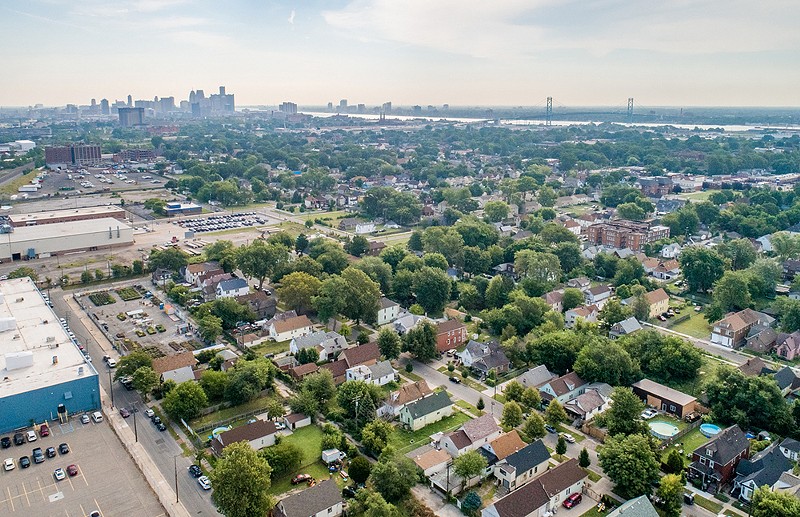App helps property owners in Detroit discover if they’ve been overtaxed
Between 2010 and 2016, the city overtaxed residents by at least $600M
[
{
"name": "GPT - Leaderboard - Inline - Content",
"component": "35519556",
"insertPoint": "5th",
"startingPoint": "3",
"requiredCountToDisplay": "3",
"maxInsertions": 100
}
]
Anti-foreclosure activists have launched a free app to help Detroiters determine if the city overassessed their property values.
The Coalition for Property Tax Justice (CPTJ) created the Search and Compare app as the city sends out property assessments.
The app is accompanied by a video that explains property tax assessment notices.
The idea is to help residents avoid being overtaxed.
Property owners have a right to appeal appeal their property’s assessed value if they believe it is too high.
About six years ago, Mayor Mike Duggan acknowledged that the city overtaxed homeowners by at least $600 million between 2010 and 2016.
The illegal, inflated property tax assessments resulted in an estimated 100,000 Detroiters, most of them Black, losing their homes to foreclosure.
The Michigan Constitution prohibits property from being assessed at more than 50% of its market value.
Between 2010 and 2016, the city assessed properties at as much as 85% of their market value. Despite the city’s admissions, overtaxed residents were never compensated for losing their homes or paying more than they owed in taxes.
“The ‘Search and Compare’ app is our latest effort to keep the City of Detroit and Wayne County from taking people’s homes through unjust tax foreclosure,” Marie Sheehan, director of the CPTJ Property Tax Appeal Project, said in a statement. “This is a tool Detroiters can use to see if their home is being assessed correctly compared to similar homes in the area. Homeowners can compare the City’s estimate of their home’s market value to sale prices of homes that have recently sold in the area. If the City says your property assessment is higher than the sales prices of similar homes in your area, the City is over assessing your property value and you need to appeal that assessment.”
The coalition has worked with the city to make property tax assessments easy for residents to understand, streamline documents, and use plain language to communicate with homeowners. The coalition has also called on city officials to compensate residents who were impacted by overassessed property values.
“The ‘Property Sales Search Tool’ app puts knowledge and power in people’s hands,” said Edythe Ford, director of Community Engagement and Organizing at MACC Development. “When we get those big, yellow property tax assessments with ‘This is not a Bill’ at the top, we now have tool we can use to tell if we’re being cheated the way we were cheated out of $600 million a few years ago. We will use this app and a video on how to read your property tax assessment to help Detroiters protect themselves against that sort of injustice.”
Most Detroiters will see a higher tax bill this year because home values rose for the sixth straight year in Detroit, increasing an average of 20% in 2022. The estimates are based on home sales data from the past two years.
Homeowners won’t see a big increase in their tax bill. Under proposal A, which was enacted in 1994, the taxable value of homes is capped annually at the rate of inflation or 5%, whichever is lower. The cap is only lifted when a home is sold.
Coming soon: Metro Times Daily newsletter. We’ll send you a handful of interesting Detroit stories every morning. Subscribe now to not miss a thing.
Follow us: Google News | NewsBreak | Reddit | Instagram | Facebook | Twitter







